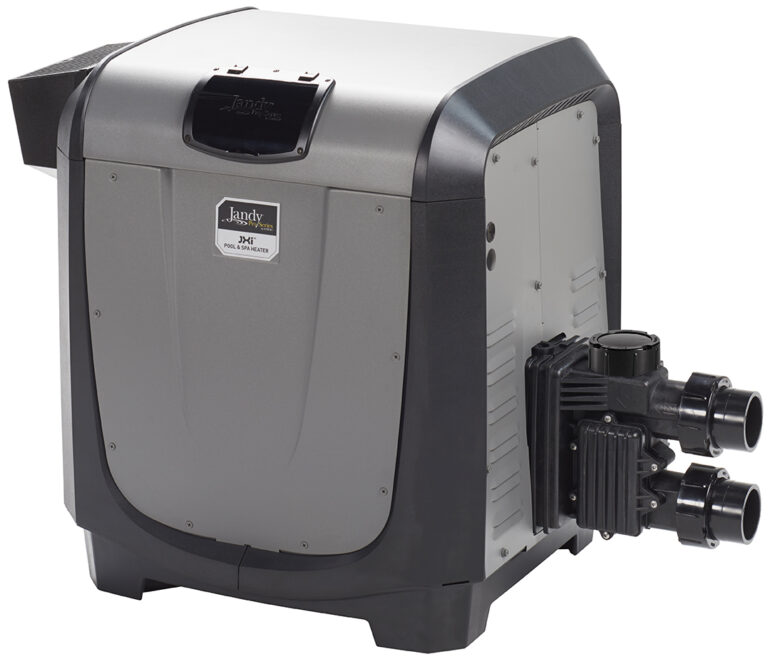Channel Choices

You’ve probably placed your big orders for the year — pallets will start showing up at the shop any day now. But maybe you’re dreaming of the day when you will do enough volume to buy in bulk. However, businesses of all sizes across the industry demonstrate there’s no one-size-fits-all approach to buying channels.
Distribution: not just for the new guy
Because they aren’t big enough to buy in bulk direct or can’t afford expedited-shipping costs, many go to their local pool distributor.
“When you’re planning, designing and building, people make change orders constantly,” says Mike Buettner, whose pool building company, Erie Shores Construction, is just over a year old.
“It’s better to have something locally where you can go to that distributor and be like, ‘Hey, can I get this in the next couple of days or so?’ versus being on the phone calling different departments.”
His company is located in Ohio, so shipping big pieces of equipment from Arizona, Texas and California can be steep.
“Usually [the distributor] either has the stuff in stock, which is a huge help when you’re showing up that day,” he says, “but if not, they have the buying power to be able to get stuff shipped overnight. By the time we get freight on some things up here to Ohio, a burner for a fire pit for example, is costing us $40 to $60.”
For Buettner and others starting out in the industry, the local distributor is a lifeline. Though he talks of the days when he can buy direct, bulk discounts aren’t limited to buying direct; companies have found distributors will work with them when the numbers make sense.
A Pittsburgh-area company worked out a deal where its local distributor essentially warehoused certain products for it. The pool company would tell the distributor at the beginning of the season how much of the product it needed, then it was set-aside for them and the company would pay as it was delivered.
Pool companies complain about higher-priced products when bought through distribution, but fewer take advantage of the value a distributor can provide — such as marketing programs, consumer financing and other improvement tools.
Michael Henson owns pH Pool Care in Cave Springs, Arkansas, which is fewer than 20 minutes from Bentonville, where Walmart is headquartered.
“My main benefit buying through distribution is that I can buy in the quantities that I need, and I don’t inventory anything,” Henson says. “That’s how I keep my pricing down. We are in Walmart country, and I use their philosophy; I keep my inventory moving. When I bring it in, 90 percent of the time it’s already sold.”
In addition to providing maintenance, service and repairs, Henson also delivers chemicals. A couple days a week are set aside to take chemicals to businesses and homes. They’ll even drop the chemicals off in the pool house if the customer wants. He’s secured the territory for SCP’s chemical brand Regal, so pH Pools is the only place in the area that sells them.
“I’m price matching [Walmart and Sam’s Club] pool chemicals,” Henson says. “On some chemicals I’m a few dollars higher than what they sell it for in the stores, but I deliver to the door. And I charge a $7.50 for delivery. My customers don’t seem to mind that whatsoever.”
The negotiating power of a buying group
Another channel to consider is a buying group, where companies place large orders as a group, negotiating with vendors to get bulk pricing. Peter von Hopffgarten, owner of Pool and Spa Depot in Brentwood, Tennessee, is a founding member of the Millennium Buying Group.
“I had a few strategic friends throughout the industry,” Hopffgarten says. “We started talking about our buying methods and buying habits, sharing information about certain vendors, what we were buying and how we were buying and it.” Six of them started MBG in 2001, which now has 29 members.
Hopffgarten credits MBG with not only getting him better pricing, but also with helping him run a better business.
“It forces you to think and operate 12 months in advance,” Hopffgarten says. “Obviously, the buying group brings a large amount of volume to the table. When you go to a manufacturer to have them build 2,000 to 3,000 of a particular swimming pool, there needs to be enough notice between the time of the purchase order being cut and fulfillment to the dealer. It forces you to do your decision making and your purchasing during the slow time in September and October, allowing you to operate your pool business during the busy months instead of wondering or worrying about supply and demand.”
But he says the camaraderie with other members is maybe the biggest benefit, “sharing war stories, success stories and best practices,” having a vested interest in each other’s business and helping each other out, Hopffgarten says. Members have even been known to share inventory, he says, offloading some if they ordered too much or bringing some in from a friend when they’re in a pinch. “We’re able to swap to balance our inventory, rather than create new vendor debt,” he adds.
MBG offers private-label products, like hot tubs, to its members helping to insulate them from e-commerce, and is starting to explore other avenues such as insurance, credit-card processing and other business savings.
“The more of that we do, the further we insulate ourselves and protect [us] brick-and-mortar guys from the Amazons of the world,” Hopffgarten says.
The brain trust of direct
When Hopffgarten started his business back in the ’90s, before the buying group existed, he was concerned about competing with larger companies in his market. He’d already worked in the industry for several years and had relationships with vendors.
“I reached out to some of the larger companies to see if they would sell to me directly,” Hopffgarten says. “And I was surprised to find how many of them were more than willing to do that. I negotiated with vendors on direct buys and found that to be advantageous on many levels.”
Buying direct, he could control his own inventory.
Henson in Arkansas remains open to buying direct and keeps in touch with his regional sales reps. “I am going to look at buying direct as I grow the business,” he says. By example, he uses Ream heaters exclusively. “If I were selling 20 heaters a season I would probably buy directly from Ream to get the price down,” he says Right now he is averaging four to five a season and says it’s not feasible at those numbers.
Buying from an OEM means you can tap into their knowledge about the product, giving you a direct pipeline to technical support as well as product, Buettner says: “They know everything about it.”
Business philosophy
No matter the size of your company, a chosen buying channel depends on your philosophy.
Placing large orders direct or through a buying group means spending a lot upfront and usually going into debt — while some pay cash, most do not or cannot. Or you can pay-as-you-go with your local distributor, which is Henson’s choice. “I’m not going to go in debt to do this business,” he says. “We’re building it as we can handle it.”






